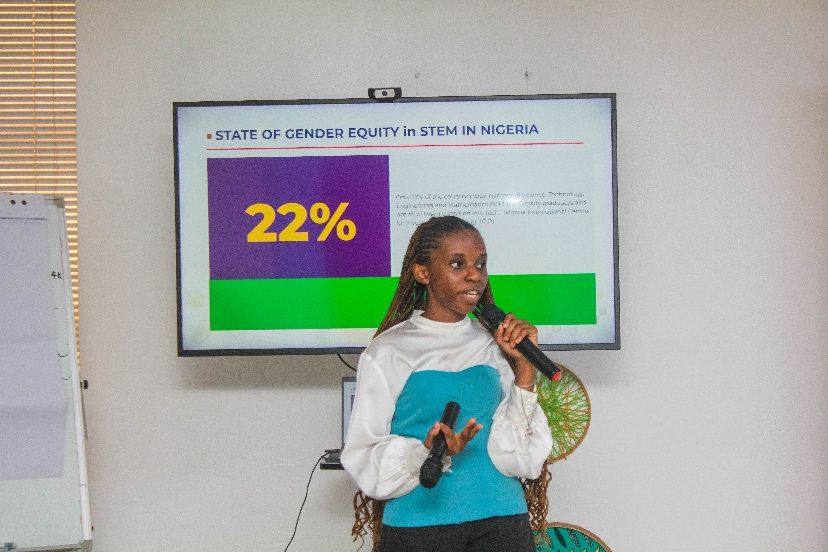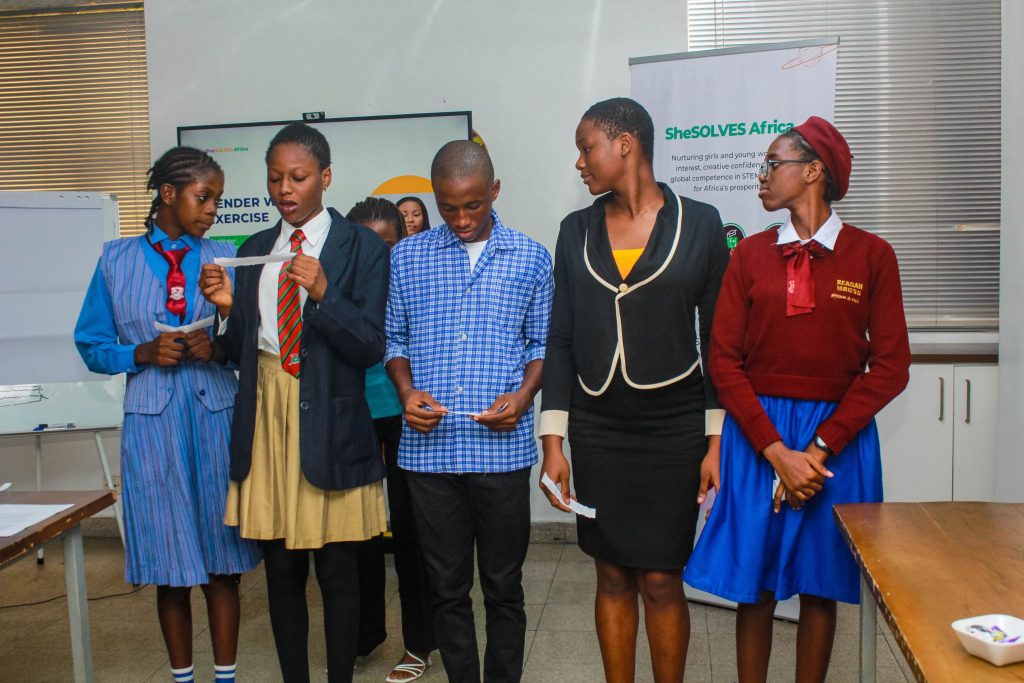SheSOLVES Africa uses foresight to close the gender gap in STEM

Abigael Anaza-Mark. Source: SheSOLVES Africa
2023 NGFP Fellow Abigael Anaza-Mark was once a student who struggled to grasp abstract science concepts. But a chemistry teacher who used simulations as a teaching method boosted her confidence and performance in chemistry.
“I was a delegate at the 2018 edition of the annual Ibadan Sustainable Development Summit (ISDS) where I learnt about the challenges with Nigeria’s education system, the existing gender gap in STEM fields, and the power of education to transform economies and societies,” she explained.
Knowing first hand the impact of innovative teaching methods, Abigael decided to embark on a mission to transform education and support young women in STEM using intergenerational dialogues, foresight and experiential application of classroom concepts to address social challenges.
She does this work through SheSOLVES Africa. In particular, an initiative called STEMFutures promotes positive attitudes towards Science, Technology, Engineering and Mathematics (STEM) among girls and young women to close the gender gap in those fields. It also helps them prepare for the future of work.

Abigael uses tools like backcasting, scenario building, panel discussions, and co-creation sessions to engage young women and girls. In February, Abigael and her team brought together 30 secondary school girls and two boys, 10 undergraduate women in STEM, five women in STEM careers of various age groups and two men in a STEMFutures event. Together with 2023 Fellow Thays Prado, she designed a STEM Gender Walk Exercise to introduce the audience to backcasting.
Backcasting the present and a desired future helps the girls and women we work with to feel seen, to empathise with others and to imagine what can be – the endless career opportunities and attainment as well as the skills required.
The exercise helped them to be more aware of the various factors that contribute to gender inequity in STEM fields as we have it today. Although some of the girls were already knowledgeable about gender inequality it was interesting to see that the shared experience, understanding, and empathy made it easy for them to forge friendships regardless of their varying socioeconomic backgrounds.
A panel of women professionals in STEM, including 2021 Fellow Fisayo Oyewale, shared their stories to inspire girls and young women to be audacious about their career aspirations. Some of the women offered to mentor girls who are interested in their career paths.
The audience also learned about foresight through Thays’ activity, “STEM-focused Envisioning Exercise: Dislocating towards a Feminist Nigeria 2054.” Painting a scenario of a desired future in STEM, girls were taken on a journey from the future (2054) to the present (2024) to imagine the skills that will be required at each stage of the backcasting process to achieve what was envisioned.
A majority of the participants had not participated in prolonged meditation before and mentioned at the end of the event that they would want to put that to practice, more often. The teachers in attendance particularly indicated that they would introduce that to their students.
Attendees also took part in a co-creation session designed to identify how girls would like to be supported to advance their career aspirations. The guiding questions focused on their interests and motivations, as well as factors that will influence their creative confidence and competence positively.
We noticed a lot of the girls felt more at home as they interacted in small circles with proximity to senior women.”
SheSOLVES Africa recently became a registered non-profit in Nigeria, something Abigael has been pursuing for nearly a year. Abigael is currently looking for learning development and instructional design support to amplify the science behind SheSOLVES Africa’s training and fiction content for girls in STEM. A website is in the works, but for now, you can connect with her via SheSOLVES Africa’s LinkedIn, Instagram and Facebook pages.